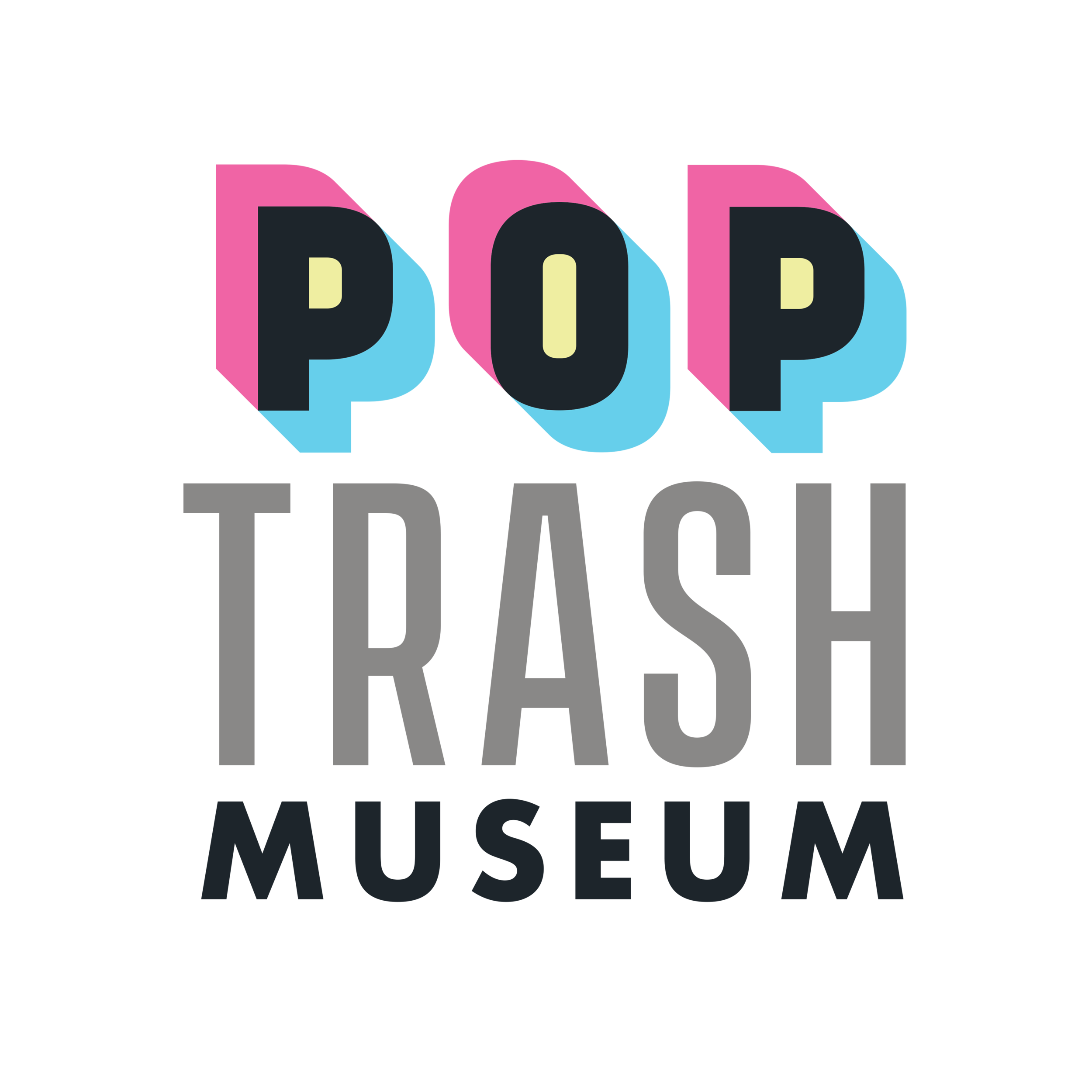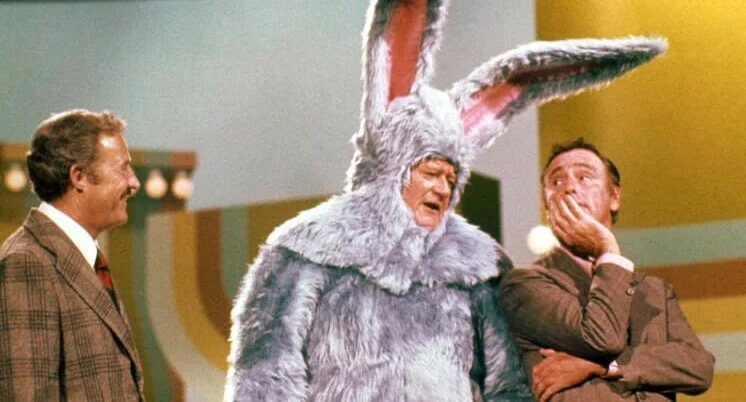Why We Need Camp Now More Than Ever
April 30, 2021
John Waters, the “pope of trash” once said, “I don’t know anyone that would ever say the word camp out loud. It’s like an 80-year-old gay man in a 1950s antique shop under a Tiffany lampshade.” Well, Heath Holland and Eric Grigs forged ahead anyway and sat down to chat about their shared love of camp. Here’s an edited version of some highlights from the conversation. View more in the video below from Cereal at Midnight.
Eric: Gather around the fire! We’re going to tell a scary story about a genre called camp.
Heath: Welcome to camp! No, not the place Jason Voorhees hangs out at, but the style of cinema that celebrates the tacky, the subversive, the low, the trashy, and the disposable!
Eric: I should have worn a Troop Beverly Hills inspired outfit for this conversation, complete with merit badges on a sash.
Heath: It should be said that we are not trying to be arbiters of anything with this conversation.
Eric: Yes, we all don’t have the same perception of things. This is just our perspective.
Heath: Are you saying art might be in the eye of the beholder?
Eric: If we are being honest, that’s a good thing.
Heath: So how do you define camp?
Eric: On the camp map, you’ll find it right on the trail between seriousness and comedy. I think Susan Sontag wrote “being serious about the frivolous and frivolous about the serious.” Too much concern with style over substance. There’s a line to be drawn from the spectacle of Busby Berkeley musical numbers to Elizabeth Berkley in Showgirls, along with everything from 70s variety show specials and the latest Transformers movies.
Heath: Sontag’s Notes on Camp is almost sixty years old. I find it to be an intimidating, dense read. It’s 55 pages of rules and landmarks of things to look for. It also was written before a lot of what I think of as camp was even created.
Eric: It’s a shame it’s become the end of a conversation instead of being a start of one. It’s now seen as the Bible on camp. I’m sure she’s proud to have written the definitive word on the subject, but there are more ideas, more conversations to be had, like the one we’re having now about what it is and why it even matters.
Heath: When I think of camp, I think of Flash Gordon. Maybe Gen X grew up in a Golden Age of Camp?
Eric: I can’t think of a time without camp touchstones. But growing up in the 80s, there definitely felt like more of a breakthrough in perspectives of outsiders was happening that continues to widen and become more inclusive.
Heath: Pee-Wee Herman.
Eric: Hair metal. Richard Simmons workout videos.
Heath: Maybe it’s always been this way, but it seems now everyone wants to put themselves in a certain box. The need for the subversive seems really important right now.
Eric: This may be where it’s harder for modern audiences to get on board the camp train. We are being taught by mass media and online sources to pre-judge things, to arrive at a predetermined conclusion before we really see something for what it is. But camp is not concerned with that. It will go there for the joke. It is not black and white, it lives in the gray areas and has to use all the colors in the crayon box. Camp is not interested in saying things must to be a certain way.
Heath: Yes, the current world we live in, everyone takes things so seriously, so it’s the perfect time for more camp. I look back at the 60s and the whole counterculture movement and all the tensions that existed in society, movies and shows were built upon subverting the norm.
Here’s a great example. I’m watching Laugh-In. Made with a pretty liberal agenda in the late 60s and early 70s. They are constantly making jokes about John Wayne. Because he is a conservative icon. Camp allows John Wayne to show up multiple times and say “sock it to me.” He had to have known how ridiculous it was and he did it anyway. He sees the joke and was in on it. He’s not so serious that he can’t make fun of the whole situation. Ultimately, it’s about telling us these boundaries that exist, I don’t have to abide by them.
Eric: But you have to know all those references. You have to know who John Wayne is. In some respects, camp requires some deeper sense of cultural and social literacy. Knowing what has come before you, that you don’t exist in a vacuum. Examining the assumption that this is the only way to do things because someone told you it was. There is a world of other viewpoints out there and camp wants to explore what’s beyond the playground.
Heath: Getting those references are important or it’s just another old guy I don’t know on some show.
Eric: If you sit on your couch and watch things while looking up the obscure character actors on IMDB, then camp is for you! Camp fun is still out there but in the mainstream we’ve lost the ability to allow ourselves to find it—or give ourselves permission to find the joy.
Heath: I don’t know if our society right now is in a place where we can look at ourselves and poke fun. Which means we need camp more than ever, and we need to acknowledge how blind we have become to the past.
Eric: Like superheroes now. Some people are only able to watch the “dark version.”
Heath: The darker you pretend the subject matter, without acknowledging the humor in it, for me it tends to fall apart. You have to wink, you have to be aware. For example, Batman (1989) is super campy. It didn’t feel like it at the time. As you get older, tell me what you think of how time affects content?
Camp has been batdancing across generations.
Eric: It’s nice that camp reminds us that as time marches on, we should maybe not to take ourselves so seriously. We all eventually become a parody of ourselves. Take Leslie Nielsen, for example. His later work in Airplane! and The Naked Gun movies is a camp character based on straightforward drama. The act is funny because he’s delivering one-liners like he’s doing Shakespeare. And now when you see him in actual dramatic roles from the 50s and 60s you interpret his appearance in those movies as funny. It’s like time is bending backward on itself.
Heath: Do you connect any dots between camp and irony? There’s a big trend where everyone watches things ironically. I would say Mystery Science Theatre 3000 built itself on irony. And they’ve probably launched us into an era where we just laugh at everything.
Eric: Hipster irony seems meant to drain the fun out of camp. Previously you’d actually enjoy it. Feeling like “this is great—I recognize it’s dated, it’s strange, it’s out there—but I love it.” I think Sontag mentions this as that weird quality when something is simultaneously attractive and repellant. I find a lot of folks engage with camp in a way where they only feel allowed to enjoy something if it is wrapped in irony. “Hey, I want you to know that I know that this is terrible.” And is that any fun?
Heath: It’s also much more fun when not doing it in a hateful or mean way. We can appreciate it for bad qualities. But ultimately it’s a loving thing, because we are really connecting with it.
Eric: And the excitement of it all! With camp, you never know what is around the next corner. We live in a time now where you can pretty much predict what is going to happen in a movie, things are pretty formulaic. Camp is like “hold my beer, watch this.” When it works really well, afterward you are probably thinking “what the hell just happened?” That’s a cool feeling, you’re jolted from the predictable being upended.
Heath: Conversations like these are important. We need camp counselors more than ever to point the way toward the fun.
Read more reviews about pop culture in analog from Heath Holland over at Cereal at Midnight.
Eric Grigs is a lazy, good-for-nothing writer right here at Pop Trash Museum and co-host of the Pop Trash Podcast.



